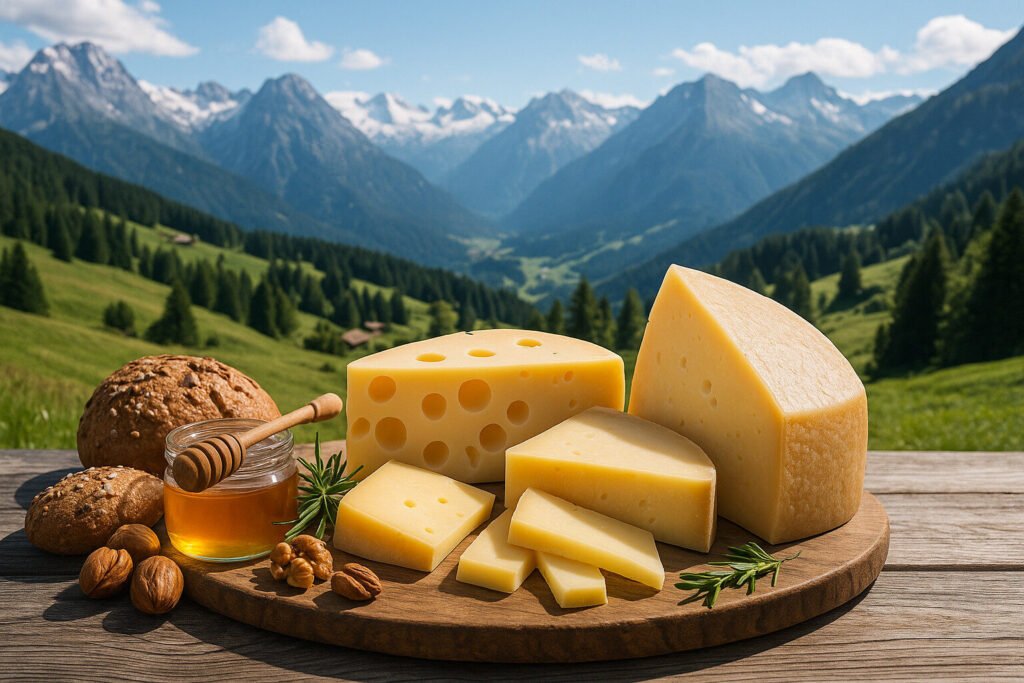Cheese Of The Alpine Region
Introduction to Alpine Cheese
Alpine cheese refers to a variety of cheeses produced in the mountainous regions of the Alps, known for their rich flavors and traditional methods.
These cheeses are often made from cow’s milk and are aged in specific conditions that contribute to their unique characteristics.
Types of Alpine Cheese
Common types include Gruyere, Emmental, and Appenzeller, each with distinct textures and tastes shaped by their local environments.
Some varieties are hard and aged for long periods, while others are semi-soft and have a milder flavor profile.
Production Methods
Traditional production involves using raw milk and aging the cheese in caves or cellars to develop complex flavors.
Modern techniques may incorporate controlled environments, but many producers still adhere to time-honored practices for authenticity.
Cultural Significance
Alpine cheese holds cultural importance in regions like Switzerland, Austria, and France, where it is a staple in local cuisines.
Festivals and markets often celebrate these cheeses, highlighting their role in community heritage and economy.
Nutritional Benefits
These cheeses are rich in protein, calcium, and essential vitamins, making them a nutritious addition to diets.
However, they can be high in fat and sodium, so moderation is advised for a balanced intake.

